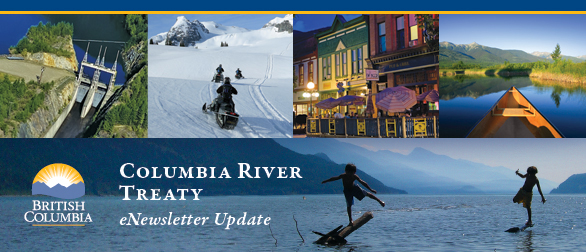Columbia River Treaty
Edition:

Columbia River Treaty Review - what next?
Many people, quite understandably, want to know what will happen next now that the Province of British Columbia has released its decision on the future of the Treaty. The answer is: there is no defined process at this stage.
Canada, represented by the Department of Foreign Affairs, Trade and Development, has the constitutional authority for international treaty-making. However, under the Canadian Constitution, the provinces are responsible for natural resource management, including hydropower development. In addition, under the 1963 Canada-British Columbia Agreement, most of the obligations and responsibilities of the Columbia River Treaty were transferred to BC. Given this, BC and Canada are committed to working closely together in preparing for any potential negotiations with the United States.
Canada and BC also have a legal obligation to consult affected First Nations on any changes that may negatively impact their constitutionally protected rights under Section 35 of the Charter of Rights and Freedoms. But beyond that, there is an ongoing government-to-government dialogue between the provincial, federal and First Nations governments to explore ways to improve the Treaty that enhance aboriginal interests.
The Province is also committed to continuing the collaboration established during the Treaty Review with local governments and Basin citizens, which is reflected in Principle 14 of BC’s decision on the future of the Treaty. The Treaty Review Team has an ongoing relationship with the Columbia River Treaty Local Governments Committee and is establishing a basin-wide advisory committee, both of which will provide advice on any future Treaty negotiations.
Whether there will be any negotiations with the U.S., and if so the timing of any Treaty discussions, depend in large part on when the U.S. Department of State completes its federal interests review and announces its decision on the future of the Treaty.
Stay tuned!





















